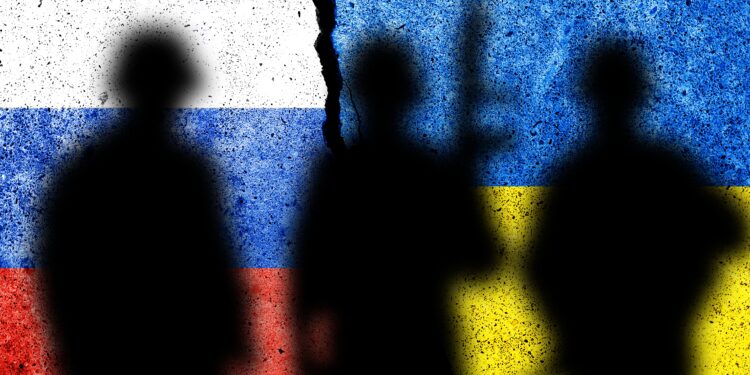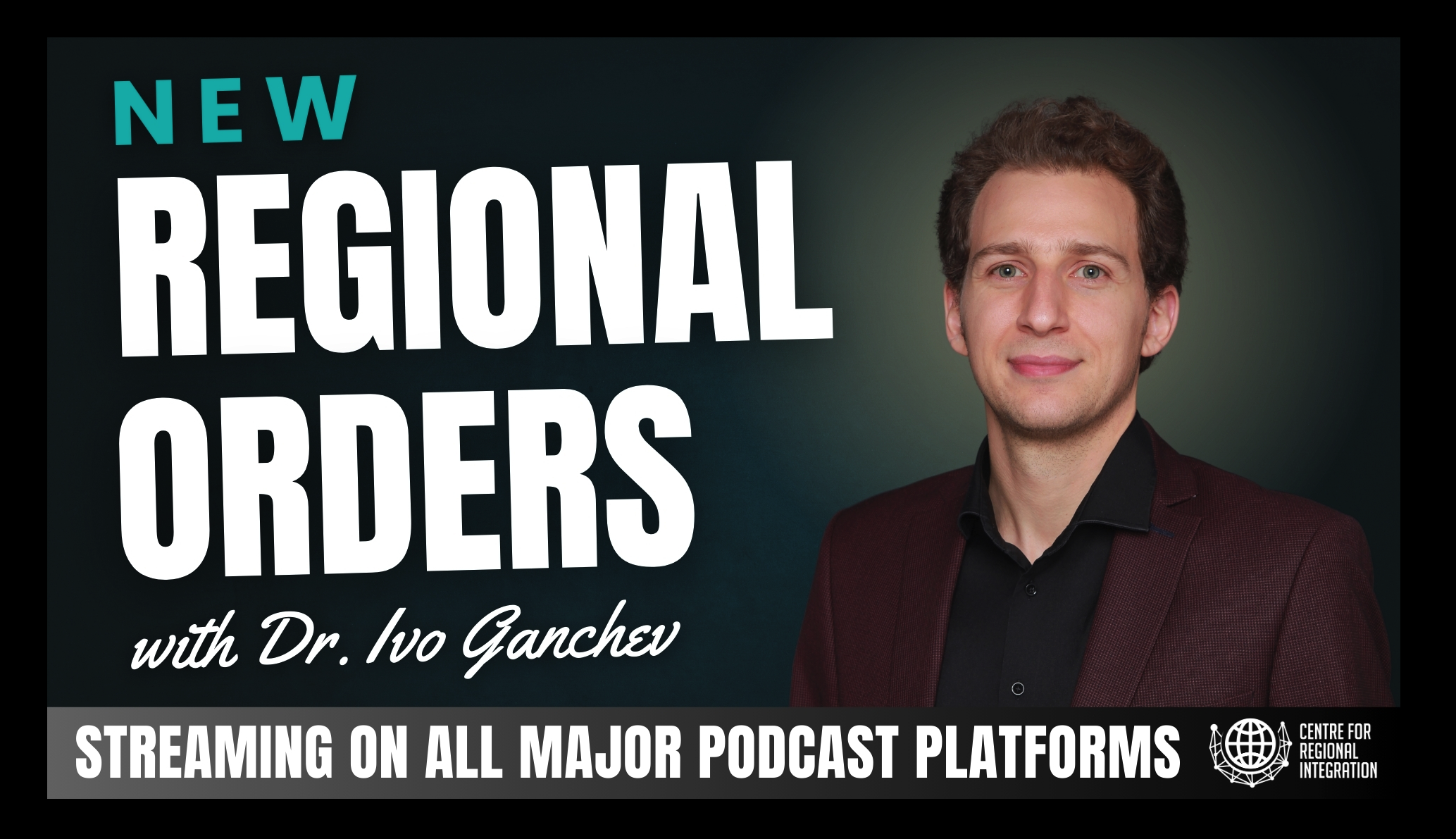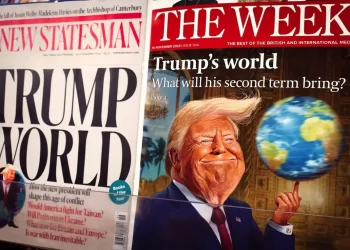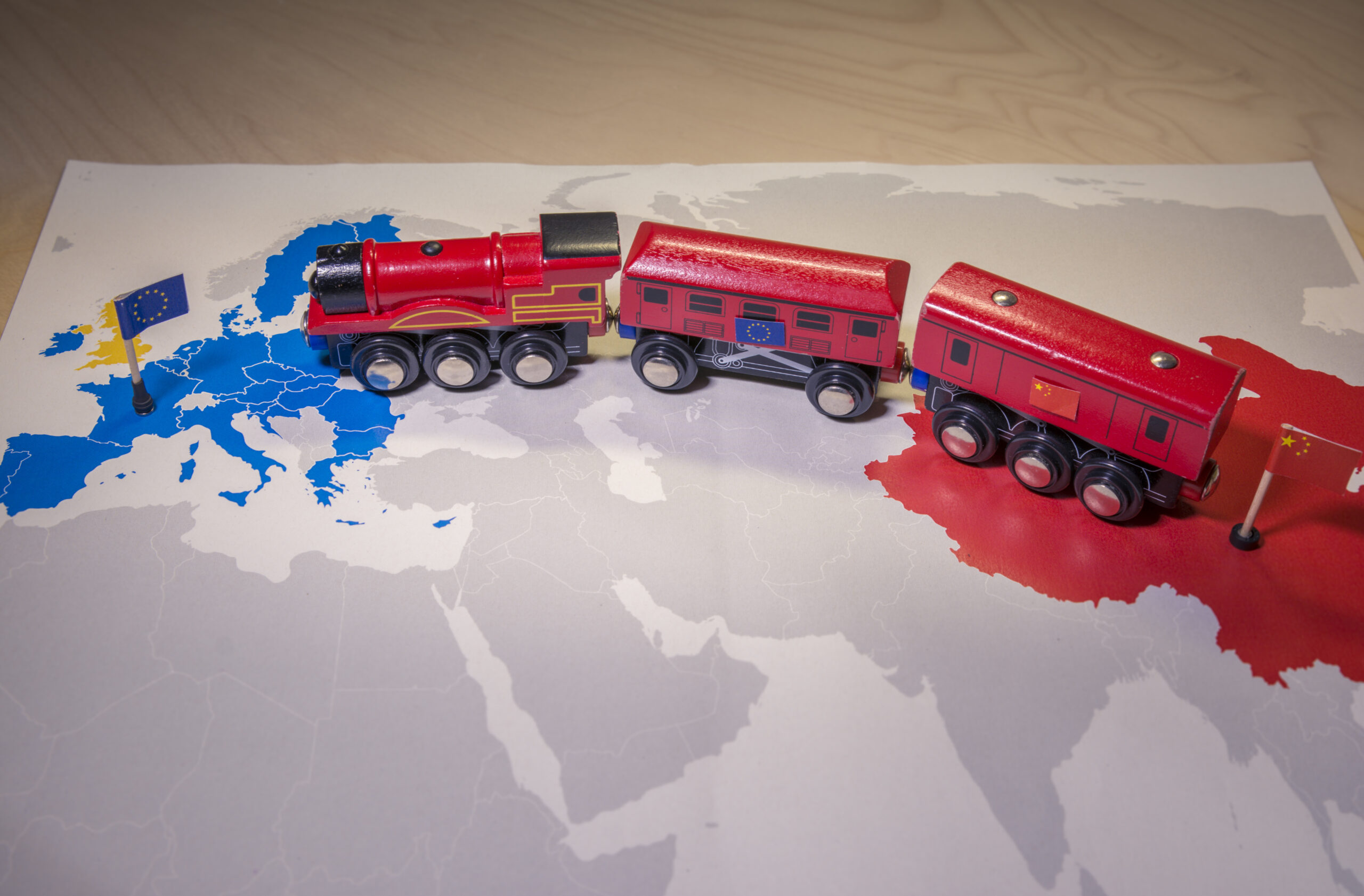Citation (Harvard): Eremin, A. (2023) “Is the War in Ukraine a Final Blow to the Liberal World Order?”, Regional Policy Insights, 1(1): 20-30.
Abstract:
This paper analyzes the impact of the war in Ukraine on the liberal world order and the role of China and Turkey in the region. It challenges the neo-liberal and neo-realist theories that have dominated the international relations scholarship and practice, and argues that they have failed to provide a sustainable foundation for the international system. It shows how the war has exposed the weakness and inefficiency of the existing international institutions and norms, and has triggered a shift to a more realism-based approach to managing international affairs, with a greater emphasis on power, interests, and ad-hoc alliances. It also proposes a post-liberal alternative that respects and accommodates the differences between nations and cultures, and fosters greater pluralism and cooperation. The paper uses a combination of theoretical and empirical analysis. It examines the interests, strategies, and outcomes of the main actors involved in the war, such as Russia, Ukraine, the US, the EU, NATO, China, and Turkey, and how they affect the balance of power and the prospects for peace and security in the region. It contributes to the academic and policy debates on the war in Ukraine and the changing geopolitics of the region.
Keywords: liberal world order, neo-liberalism, neo-realism, war in Ukraine, Russia, China, Turkey, NATO, international institutions, power transition theory, post-liberalism
The collapse of the bipolar system of international relations and the end of the Cold War marked the emergence of a neo-liberal world order, as described by many experts and scholars. A key feature of this order was the high degree of structural power of the United States of America, manifested through various international institutions and the widespread use of the US dollar in the world economy. For a long time, many experts in International Relations advocated for a transition from a de-facto unipolar system to a multipolar one, where different actors could balance each other’s aspirations (Ikenberry, 2005). However, since 2011, China has increased its economic presence in various regions of the world, especially in Africa and Latin America, revealing its grand international ambitions. This has led to a shift from the discourse of desired multipolarity to the reality of a new bipolarity between the United States of America and the rising superpower of the People’s Republic of China (Yan, 2011).
According to the power transition theory, the conflict of interests between an established and a rising superpower stems from one party’s attempt to maintain the status quo and the other’s pursuit of its revision in its own favor (Wang et al., 2022). It is evident that the current world order has been shaped by the needs and interests of the United States of America and has been deeply rooted in the principles of neo-liberal institutionalism, which emphasize international institutions and the structural characteristics of the international system. International law and a set of international institutions serve as nothing more than the instruments of structural power of the most privileged nation; and it seems only logical that any potential challenger would seek to either undermine them or create their own alternatives.
Besides the major contenders such as the US and China, and their respective allies, there are other nations that seek to pursue their own interests outside of the existing hierarchical structures. The Russian Federation is one such contender, that has been interested in revising the status quo, but has also been reluctant to join any existing hierarchy, opting instead to create its own. However, according to the peripheral realism of the late Carlos Escudé, building such a structure is always a costly endeavor, which requires maximizing the autonomy of foreign policy and entails high risks in case of failure (Schenoni and Escudé, 2016).
If we examine the politics of Russia since 2012, when Vladimir Putin returned to the presidency by circumventing any constitutional constraints, we can see how Russia has been deliberately enhancing its foreign policy autonomy, especially in relation to the post-Soviet space and Ukraine, through the annexation of Crimea in 2014. However, a critical assessment of the state of Russian political and economic influence on the global and regional scale reveals that Vladimir Putin did not succeed in building such a hierarchy, especially considering the current anti-Russian sanctions from the western states. At this point, as Carlos Escudé suggested, Russia has been gradually becoming a pariah state (Ibid.), losing its remaining influence even in the most prioritized regions, including the post-Soviet space (Petrovitch-Belkin et al., 2019). As a result, by 2021 the cost of autonomy of Russian foreign policy had far exceeded any expected benefits, seriously undermining the economic well-being of the state, and indicating the unsustainability of the original intent.
However, the Russian government, which by then had already undergone a severe process of autocratization, was not ready to back down. The war against Ukraine, the most devoted supporter of the US and the EU in the region, can and should be regarded as a final attempt to achieve radical autonomy of Russian foreign policy. This was a bold move that, if successful, would have inflicted a severe blow to one of the existing hierarchies by showing that the United States of America lacked the ability to defend its allies, and would have also helped Russia establish itself as a stronger superpower, capable of running its own hierarchy and protecting its members. But the reality proved to be harsh and unfavorable for the invaders, turning the war into a prolonged conflict, and the level of support of the western nations for Ukraine much higher than originally anticipated by the Russian leadership. As a consequence, some of the initially occupied territories have already been reclaimed, and others are under constant military pressure from the Ukrainian armed forces. At this point, we can almost say that Russia effectively failed to achieve its global goal – becoming a fully equal international actor as China or the US; but the main phenomenon that interests us here is how the world reacted to the Russian invasion, and why we argue that even after almost failing the initial objectives, this military aggression has dealt a devastating, if not fatal, blow to the existing liberal world order.
The disturbing truth is that despite the US intelligence’s efforts to expose the impending military aggression of Russia (see Pilkington, 2022), no international structures were prepared for this scenario, nor did they take any effective steps to defuse the situation and deter the Russian Federation. Neither the United Nations, where no meaningful actions against Russia are possible due to its privileged position in the Security Council, nor any other international organizations and institutions were able to influence the situation in any significant way. The only noticeable measure at the international level was the decision of the International Criminal Court to issue an arrest warrant for Vladimir Putin, which was more symbolic than practical.
With all this in mind, we can conclude that the existing international liberal world order, as defined by Mearsheimer (Centre for Independent Studies, 2021), proved to be unfit for tackling these issues. This is not surprising, given that its theoretical foundation is based on the idea of economic interdependence, the inherent focus on rational choice, and the attention to the role of international institutions and norms; while being completely oblivious to the scenarios where states show no commitment to operate within this logic (Moravcsik, 1997). An example of such a reaction, ignoring an inconvenient reality, is the publication of the Council on Foreign Relations, that focuses on describing possible ways to hold Russia accountable for the war crimes in Ukraine (Scheffer, 2022).
In light of the discussion so far, we can confidently say that there is no effective way to do that yet, at least not at the level of international institutions. This leaves the problem to be dealt with by horizontal enforcement, rather than vertical[1], highlighting the importance of the states as international actors over the international structures once again. In this sense, the war between Russia and Ukraine, along with another great catastrophe of the 2020s in the form of the COVID-19 pandemic, has shown the inefficiency of such a model of regulating the international system when it comes to serious challenges and security threats, as they lack essential mechanisms of enforcement and decisive action.
In these circumstances, when the international system proved to be incapable of handling such a crisis in the form of a full-scale war in the heart of Europe, it was only natural to see that the most effective measures came from individual states and their specific foreign policy decisions to sanction Russia or provide aid to Ukraine. The most proactive in this regard were the United States and the United Kingdom, with their impressive aid packages. This was different from Germany, France and the EU in general, who despite the fact that the war was a much more direct threat to their well-being and security, hesitated to offer financial and military assistance to the Ukrainian authorities (Ellyatt, 2022). Some EU states were even heavily criticized for making dubious attempts to reconcile the sides of the conflict and occasionally promoting the narrative of freezing the conflict “as is” (Reuters, 2022); which in turn provoked an outrage from official Kyiv (Dettmer, 2023).
Another case is represented by the reaction of the countries that are either completely outside of the US international hierarchy, like China; or are currently in the process of increasing their degree of foreign policy autonomy, like Turkey. In the case of China, their involvement in the resolution of the conflict is not inherently anti-Russian. Quite the opposite, the plan of the People’s Republic of China that they revealed in February 2023 was said by many experts to take a very favorable position towards the interests of the Russian Federation, while still aiming to stop the warfare (Ministry of Foreign Affairs of the People’s Republic of China, 2023). This approach is easy to explain, as Russia, after failing to build its own hierarchy, has chosen to move towards integrating into the sphere of influence of China. While the political gains from this are more than questionable, since Russia is subject to a massive number of sanctions, economically this proves to be quite beneficial for Beijing, which now de-facto has a wide monopoly on the 143.4 million people strong Russian market. This includes such vital industries, like car production, electronics, FMCG products and so much more; in these conditions, the Russian government cannot really afford to go against the will of the Chinese counterpart, and this indicates a serious degree of dependency, which is only going to increase in the foreseeable future.
Another benefit for China lies in the application of diplomatic efforts, which have lately shown some impressive results in the Middle East. Theoretically, being a peace broker in Ukraine would entail significant gains in reputation and would project the image that such a nation can deliver. This would portray China as a far more capable state, especially in relation to the media narrative of the US, the EU and NATO being unable and unwilling to commit themselves to the protection of Ukraine, especially in the form of denying Ukraine the opportunity to join the Alliance on a special procedure (Landale and Gregory, 2023).
The case of Turkey here is somewhat different from China. As a NATO member, Turkey under the rule of Erdogan resembles Russia in many ways, as it is also undergoing a rapid democratic backsliding. Recep Erdogan has been using the privileged position of his country as a NATO member to enhance the role of Turkey in the Alliance, as well as a platform for expanding the influence of Turkey in its regions of interest. One example is the rise of Turkish presence in Central Asia and South Caucasus, where they seized the opportunity to help Azerbaijan win the long-standing conflict in Nagorno-Karabakh. In this sense, Turkey is also rapidly increasing its degree of foreign policy autonomy, but does so mostly at the expense of the diminishing Russian influence and without engaging in a direct confrontation with most Western nations or China.
At the same time, Turkey is playing both sides: while clearly supporting Ukraine with Bayraktar drones and generally recognizing Ukraine’s sovereignty over its eastern territories, Ankara also benefits from booming trade with Russia and a large influx of Russian migrants with their capital (Kenez, 2023). Erdogan actively avoids radical rhetoric towards Vladimir Putin, and during the last electoral cycle in Turkey, Russian state-sponsored media showed a lot of support for his candidacy (Turak, 2023), indicating that the relations with Turkey are still regarded positively by the Russian political establishment.
All this leads us to the idea that while a liberal international system with its norms and institutions failed, the effectiveness of efforts at a more basic level of bilateral relations proved to be much higher and have more impact on the ongoing events. Among academics and experts, this has resulted in an obvious shift to a more realism-based approach to managing international affairs, with its focus on states as the only viable and meaningful actors, attention to power maximization, ad-hoc alliances, and a more tolerant attitude towards military conflicts in general. The traces of that are seen right now: EU nations, which were more than happy to have been cutting down on military spending and redirecting the money towards economic development and social policies for decades, are hastily increasing their defense budgets, as the need for a competitive army becomes more and more evident.
The same thing applies to the rising significance of military alliances such as NATO – many scholars and experts have been talking about the crisis of identity within the North Atlantic Treaty Organization (Feuerherd, 2017); but the war in Ukraine has seriously revitalized the organization, leading to the resurgence of interest from previously non-aligned and neutral nations, such as Sweden and Finland (NATO Parliamentary Assembly, 2023). And needless to say, the issue of financing the structure that has troubled its members is now also becoming less relevant, when the potential threat to some of the members appears to be very real.
Does this mean that liberalism will lose its appeal in the international arena and give way to more pragmatic and self-interested politics based on realism? This is certainly a possible scenario, and one that would be detrimental to humanity as a whole, since realism essentially implies that: “strong do what they can, weak suffer what they must” (Thucydides, 1963). Liberalism, despite its utopian aspirations, offered a much better set of values in terms of humanism and utility, which are worth pursuing. The fact that the war in Ukraine dealt a severe blow to the existing international order does not necessarily mean that it will become less liberal. As constructivists would suggest, the war has forced us to reconsider our views on international affairs, but it is up to us to learn from this experience. One could argue that while liberal democracies have been building their structural power in the international arena within a neo-liberal framework (with occasional bouts of realpolitik in Iraq and Afghanistan), Russia has been a power maximizer operating under the logic of structural offensive realism, disregarding the existing constraints and challenging the international system. This does not mean, however, that this behavior will benefit Russia in the international arena or secure it a more favorable position in the revised status quo. On the contrary, Russia risks becoming either an outcast or a highly dependent state, while other nations will progress at its expense. In other words, paradoxically, adhering to the principles of realism might prove to be counterproductive in the long run.
Neo-liberalism and neo-realism have both failed to provide a sustainable foundation for the international system. What alternative can we pursue? Post-structuralism offers a critical perspective on the structural theories, but does not offer much guidance on how to organize the international arena. The best approach is to avoid being constrained by specific theories and to identify the ideas that are worth promoting further. Nicholas Michelsen and his co-authors from King’s College and University of St. Andrews have proposed a gloomy, but constructive view on the possible trend of IR development. They argue that the current events have triggered a slow demise of the liberal world order, which was based on universal principles and abstract ideas. As these ideas lose their significance, the so-called “birth-cultural” practices, which are more respectful and sensitive to the differences between nations, will gain power (Michelsen et al., 2023). This may seem like a negative outcome, as it implies that the aspirations of increasing internationalism, integration and international law will be replaced by outdated pursuits of sovereignty and autonomous policies. However, I contend that this is actually a better, more suitable and simpler base for the further development of international regulations, which will avoid the exclusivity of the western-based norms and foster greater pluralism (Ibid.). This does not sound too bad, considering that many fundamental liberal international institutions (such as the UN and its Security Council) have reached a dead-end in terms of their development.
On the whole, it may be beneficial to reassemble the international system, taking into account its major flaws so far. In theory, this could lead us to the same values that were developed and promoted before, but in a more advanced theoretical framework of post-liberalism.
[1] Here, horizontal enforcement refers to the enforcement of international norms by states among other states. In contrast, vertical enforcement refers to the enforcement by supranational entities, such as intergovernmental organizations (IGOs).
References
Centre for Independent Studies (2021) The New Cold War | John Mearsheimer | Tom Switzer | CIS, Video on YouTube, 19 October. Available at: https://www.youtube.com/watch?v=8mCzbiF5TmQ
Dettmer, J. (2023) For Kyiv, the War Aims Are Clear; That Is Not the Case for Its Allies, Politico, 17 July. Available at: https://www.politico.eu/article/kyiv-war-aims-nato-allies-gratitude-volodymyr-zelenskyy/
Ellyatt, H. (2022) ‘It’s a Joke’: Germany’s Offer of 5,000 Helmets to Ukraine is Met with Disdain amid Russia Invasion Fears, CNBC, 27 January. Available at: https://www.cnbc.com/2022/01/27/germanys-offer-to-send-5000-helmets-to-ukraine-provokes-outrage.html
Feuerherd, P. (2017) NATO Survives its Identity Crisis, JSTOR Daily, 13 March. Available at: https://daily.jstor.org/nato-survives-its-identity-crisis/
Ikenberry, J. G. (2005) Power and Liberal Order: America’s Postwar World Order in Transition, International Relations of the Asia-Pacific, 5(2), 133-152.
Kenez, L. (2023) Turkey’s Exports to Russia Continue to Rise amid Declining Trade with Other Countries, Nordic Monitor, 5 July. Available at: https://nordicmonitor.com/2023/07/turkeys-exports-to-russia-continue-to-rise-amid-declining-trade-with-other-countries/
Landale, J. and Gregory, J. (2023) Nato Summit: Allies Refuse to Give Ukraine Timeframe on Joining, BBC News, 12 July. Available at: https://www.bbc.com/news/world-europe-66167616
Michelsen, N., De Orellana, P., and Costa Buranelli, F. (2023) The Reactionary Internationale: The Rise of the New Right and the Reconstruction of International Dociety. International Relations, 0(0), Ahead of Print.
Ministry of Foreign Affairs of the People’s Republic of China (2023) China’s Position on the Political Settlement of the Ukraine Crisis, 24 February. Available at: https://www.fmprc.gov.cn/mfa_eng/zxxx_662805/202302/t20230224_11030713.html
Moravcsik, A. (1997) Taking Preferences Seriously: A Liberal Theory of International Politics, International Organization, 51(4), 513-53.
NATO Parliamentary Assembly (2023), Ratification of Finland and Sweden’s Accession to NATO. Available at: https://www.nato-pa.int/content/finland-sweden-accession
Petrovitch-Belkin, O., Yeryomin, A. and Bokeriya, S. (2019) The Problem of Russia’s Declining Influence in the former Soviet Union: Why are the CIS Countries Drifting toward Multilateralism? International Organisations Research Journal, 14(1), 94-112.
Pinkington, E. (2022) US intelligence believes Russia has ordered Ukraine invasion – reports, The Guardian, 20 February. Available at: https://www.theguardian.com/us-news/2022/feb/20/russia-invasion-ukraine-biden-blinken-us-national-security-council
Reuters (2022) EU Top Diplomat Calls for Immediate Ceasefire in Ukraine, 3 March. Available at: https://www.reuters.com/world/europe/eu-top-diplomat-calls-immediate-ceasefire-ukraine-2022-03-03/
Scheffer, D. J. (2022) Can Russia Be Held Accountable for War Crimes in Ukraine? Council for Foreign Relations, 4 April. Available at: https://www.cfr.org/article/can-russia-be-held-accountable-war-crimes-ukraine
Schenoni, L., Escudé, C. (2016) Peripheral Realism Revisited, Revista Brasileira de Politica Internacional, 59(1): e002, 1-18.
Thucydides (1963) History of the Peloponnesian War, trans. Warner R., Penguin Classics, Book 5, Chapter 89.
Turak, N. (2023) Putin Congratulates ‘Dear Friend’ Erdogan as NATO’s Turkey Challenge Looks Set to Stay, CNBC, 29 May. Available at: https://www.cnbc.com/2023/05/29/putin-congratulates-dear-friend-erdogan-as-natos-turkey-challenge-looks-set-to-stay-.html
Wang, H., Allison, G., Li, C. (2022) Thucydides’ Trap Revisited: Prospects for China-US Relations (A Dialogue with Graham Allison and Chen Li). In: Wang, H. and Lu, M., Understanding Globalization, Global Gaps, and Power Shifts in the 21st Century, 147–161.
Yan, X. (2011) From a Unipolar to a Bipolar Superpower System: The Future of the Global Power Dynamic. Carnegie Endowment for International Peace. Carnegie Endowment for International Peace. Available at: https://carnegieendowment.org/2011/12/30/from-unipolar-to-bipolar-superpower-system-future-of-global-power-dynamic-pub-47688
Dr. Arkadiy Eremin is an Assistant Professor of International Relations and Political Science at Webster University. He holds a BA, an MA and a PhD from the People’s Friendship University. His research articles have appeared in international journals such as the International Organisations Research Journal and .Sexuality & Culture. Dr. Eremin has a strong expertise in regional security and human rights.

